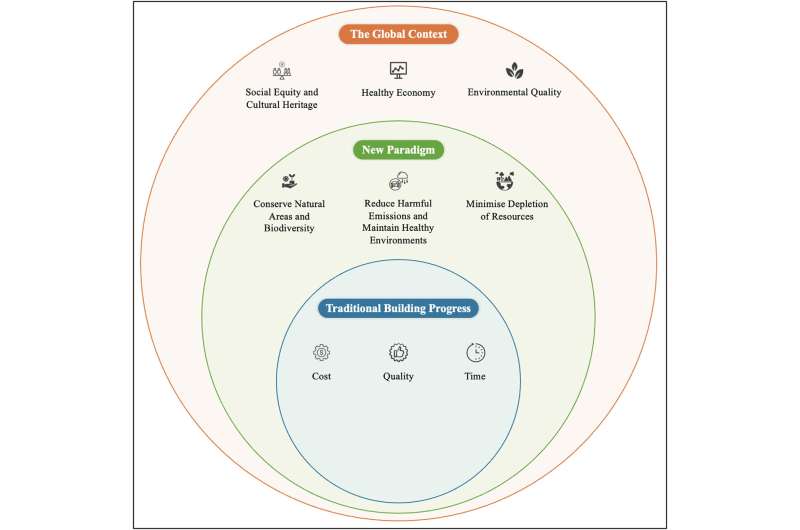
The application of artificial intelligence (AI) has the potential to revolutionize the hands-on construction industry and contribute to long-term environmental sustainability in our built environment.
A literature review out of City 4.0 Lab's Urban AI Hub in the QUT School of Architecture and Built Environment has found its implementation will contribute to multiple UN Sustainable Development Goals (SDGs) including clean energy, sustainable cities and climate action.
The article "Artificial intelligence and sustainable development goals: Systematic literature review of the construction industry" is published in Sustainable Cities and Society.
The study's first author Ph.D. researcher Massimo Regona, who conducted the research alongside Professor Tan Yigitcanlar, Dr. Carol Hon and Dr. Melissa Teo, said the construction industry is "one of the major polluters" in Australia.
"However, significant efforts are being made across the sector to align with sustainability principles by incorporating green building standards, using sustainable materials and adopting innovative technologies," he said.
Analyzing 91 publications—78% of which were published in the last three years suggesting heightened interest—the study explored how AI could be integrated across key project phases to enhance sustainability.
Across the SDGs pertinent to the industry, the research suggested AI could optimize energy usage in building designs through predictive modeling and energy simulation, while also promoting sustainable consumption and production practices by optimizing resource utilization and waste reduction.
Its use could also improve supply chain efficiency, workforce productivity and stakeholder engagement, contributing to broader sustainability goals.
Additionally, AI-driven technologies such as machine learning and natural language processing was shown to improve the collection and analysis of sustainability data, enabling proactive responses to emerging issues.
In an increasingly digital world, construction remains hands-on and low-tech. While there has been some uptake of AI in the field, Regona said its application is limited due to a lack of expertise, cost concerns and the industry's traditional reliance on human labor.
"There is growing curiosity in leveraging AI to optimize construction phases through site surveying, predictive analytics, automation and smart construction materials," he said.
"Some companies appreciate that these innovations have the potential to transform traditional practices into more efficient and sustainable methods."
More information: Massimo Regona et al, Artificial intelligence and sustainable development goals: Systematic literature review of the construction industry, Sustainable Cities and Society (2024). DOI: 10.1016/j.scs.2024.105499
Citation: Reaching new heights: AI can help us build better buildings (2024, June 25) retrieved 25 June 2024 from https://techxplore.com/news/2024-06-heights-ai.html
This document is subject to copyright. Apart from any fair dealing for the purpose of private study or research, no part may be reproduced without the written permission. The content is provided for information purposes only.
